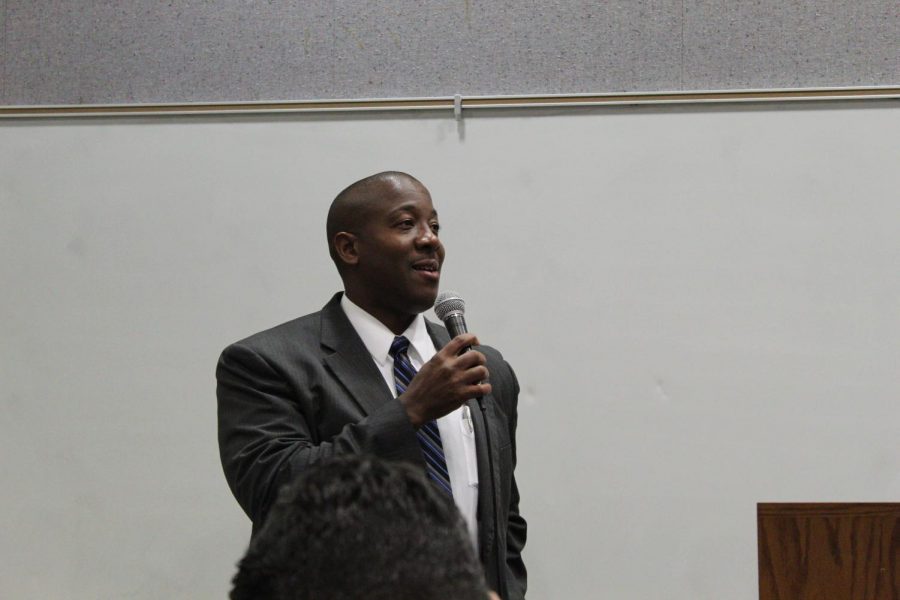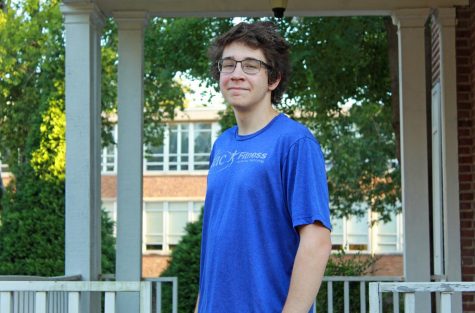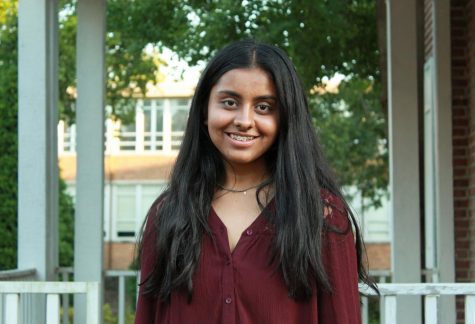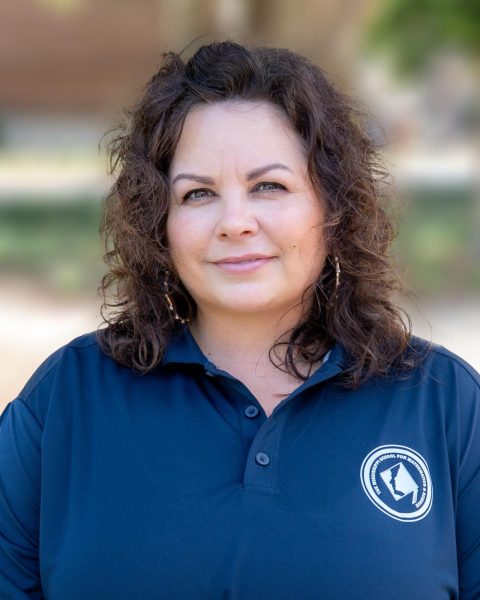How decisions are made during a pandemic
MSMS Executive Director discusses the decision making processes with AIden Liese.
April 16, 2020
Despite the appearances of the world seemingly crumbling around us, the administration of MSMS still has a school to run, and at a level that will still provide a challenge to its students at that. Executive Director Dr. Germain McConnell met via video call with The Vision news editor Aiden Leise to discuss how the school’s executive leadership team has kept looking ahead during these difficult times.
(Note: This interview was conducted on April 7, a week before Governor Tate Reeves’ announcement that all Mississippi schools will remain closed for the rest of the year. Some statements from both parties have been edited for clarity and brevity.)
Aiden Leise: Who all is on the executive leadership team?
Germain McConnell: You have all of the directors (student affairs, academic affairs, advancement, executive)…Then you have your coordinators (public relations, admissions, technology)…and the senior executive assistant, Ms. Amber Lynn Moore. We’ve also expanded it to include other voices. We have two faculty members, a humanities faculty member in Mr. Yarborough and a STEM faculty member in Ms. Koenigsberger. Then we also have both of our hall directors on there, so we’re getting voices from various sections of employees.
AL: How often has the team been meeting?
GM: The ELT (executive leadership team) meets once a week. However, if we need to call a special meeting we will. The directors meet every couple of days. There are just things that come up that we need to discuss on a deeper level sometimes, things we can’t share.
AL: With the ELT and the directors’ meetings, what kinds of things have been on the agenda during our extended time away?
GM: I mean, some of the same things. We still have to operate and prepare for the next year. We’re looking at our employee handbook right now, going through it page by page. We get updates from each division, and as we’re discussing certain things, especially related to COVID-19, we have different situations, like technology. What’s happening in technology related to this? I get a chance to hear directly from the faculty members in addition to Ms. Brown, who’s over academic affairs. What’s happening in the residence halls with our staff there? What’s happening with our custodian? That is under Ms. Alexander. We’re talking about things related to the situation we’re in, but we’re also looking forward to when students come back to campus, and/or next year. It’s business as usual for us, but it’s an opportunity to… get inputs from different angles related to the current situation we’re going through.
AL: I’m trying to figure out more about how the decision making process has been going for the school. What have those discussions been like?
GM: I think the most important thing has been listening to the recommendations from the CDC, the Governor’s office, the Department of Education, and what’s happening with the Mississippi University for Women. They’re meeting each week, as well… talking about certain things, and so myself and the other directors are in on those conversations because we’re also a part of this university, their leadership team and the decisions that they’re making. The decisions that they make impact us, and the decisions we make may impact them in some way… We’re looking at information that comes in from different sources, seeing how it impacts us, and kinda having an idea of what we want to do, but knowing that we can’t make some decisions without the approval of some who are above us.
AL: In what ways does the way we have to handle things as the Mississippi School for Math and Science that’s different from other schools? What I’ve heard from faculty is that we’re still the school that has to go above and beyond instead of a math packet every week.
GM: For us, we understand that our students came to us because they need more of a challenge, and so the question is, our goal is always: How do we continue to challenge students academically? We’re looking at information as it comes, so I’m listening to the faculty members, saying hey, we’re having these issues maybe with some students, trying to meet with those students individually. At the end of the day, if it turns out that we have a whole bunch of students who just aren’t living in environments at home that they can pay attention, I mean, we’re trying to meet those students individually instead of saying, “Okay, let’s not do anything else.” We also know that students still need to be stimulated academically, and we’re trying to prepare our students for the next level, whether it’s juniors trying to lay the foundation for what’s going to be covered in senior year, or seniors who really need these things before they go off to college. So because we have a smaller number of students, because we have an academically gifted population, we know that we can’t just do nothing…. That’s what makes it a little bit different for us…At the same time, we know that we can’t cover all the material that we would’ve covered if students were here. We know that can’t happen, but at a minimum we’re trying to continue to move students forward and push them to learn as much as they can before the end of the school year.
AL: What have been some of the tougher decisions under the authority of school administration? What have some of those decisions looked like?
GM: Some of the tougher decisions we’ve had to make, some of them are in our authority, but not necessarily… I can’t say that we have made too many decisions. We’re still remaining hopeful. We’re not trying to make decisions too soon because we are still hopeful as with everybody else. When I say “too soon,” that means that we’re still hopeful we might be able to come back. We’re trying to get as much information as we can before making certain decisions, but once we have the information, we’re going to make the decision. The first priority, as we’ve said from the beginning, is to keep students safe. Those are the decisions from the federal government, to our state and local governments… Then, the second part for us is, how do we continue to challenge students academically? Our decisions are made in that particular focus… I think that’s the best I can say. As long as we’re staying within those two parameters, we’ll make those decisions.
AL: Has there been a lot of trouble for the team to work all of this stuff out from home?
GM: You know, technology is amazing. I am so thankful for technology. I mean, I’ve been having three and four meetings a day with different entities. I just got off a video conference with our national consortium. It’s business as usual in terms of meeting together and making decisions. It’s just the decisions that we’re trying to make, it’s frustrating and agonizing that we can’t make the decisions because we… don’t have the information we need yet. For us, no, there hasn’t been an issue with us coming together, communicating and talking… I’m a huge planner, so now of course, as always, I’m preparing for the best and the worst case scenarios. I like to plan well in advance, and this time, I can’t plan as far out as I want to.
AL: Is there anything else you feel that needs to be said on the previous questions?
GM: I think the most important thing is, and I’ve communicated this previously: this is not ideal for anybody. This is tough mentally on students and their families. We understand that, but it’s also tough for us because this is not why we’re here at MSMS. We’re here because of everyday interactions we have with our students, to have an opportunity to see them mature and grow and develop. It’s been tough for all of us, but we’re trying to make the best decisions. Again, number one about keeping students safe but also how we can continue to challenge them. We know everyone’s on different levels: different levels of preparedness before they came, different levels intellectually, and how can we continue to meet students on an individual basis to challenge them to move beyond where they are right now intellectually and academically? Those are challenges, but I’m glad to work with a tremendous faculty and staff to make the best decisions. That’s the other thing. We’re trying to make decisions also with the input of students and parents because it impacts them, so I don’t want to forget about that. It’s not just the employees here, we’re also listening to students and parents, and trying to make the best decisions for them.










